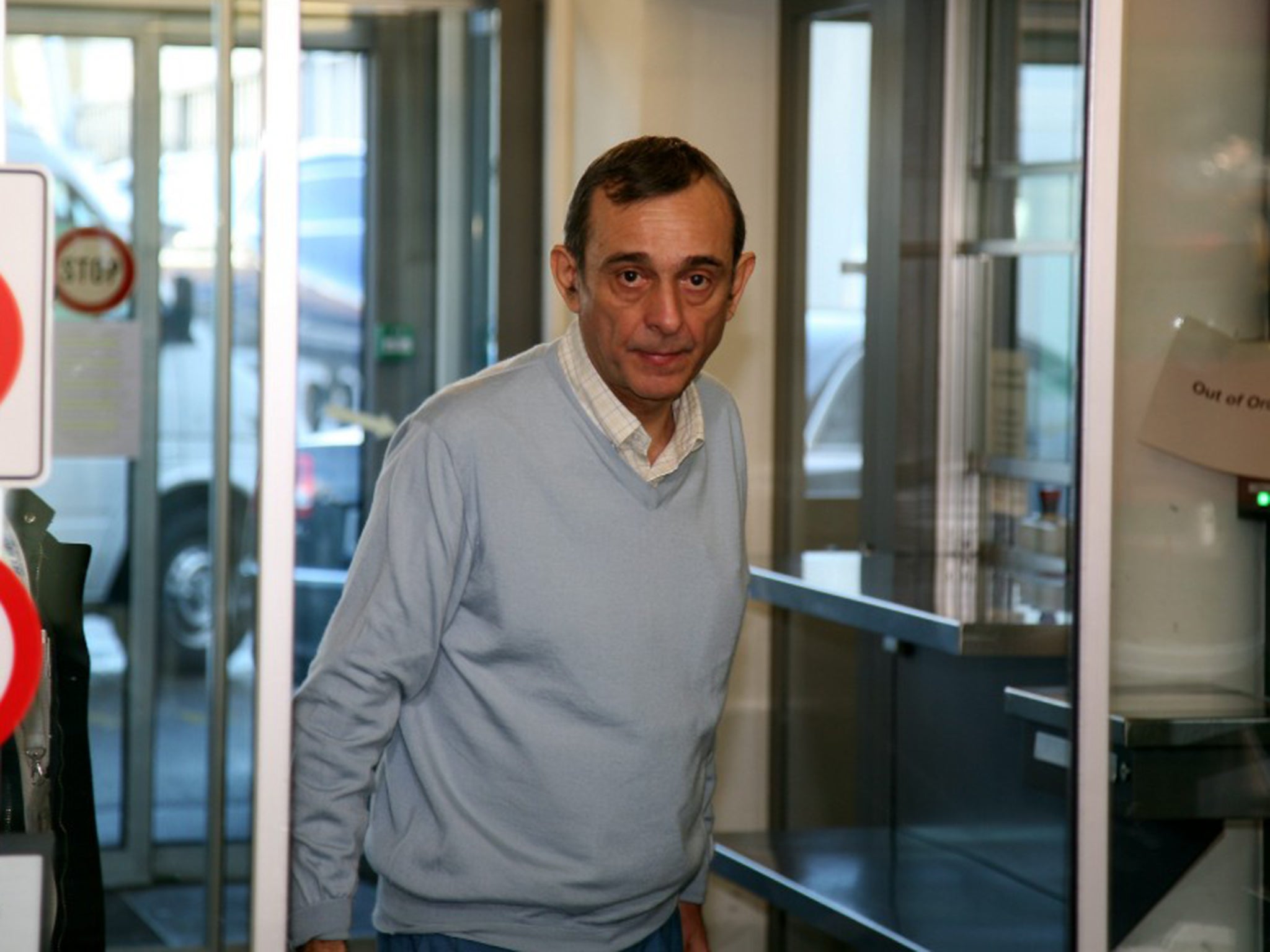Claude Dauphin: late leader in the commodities trading industry who was jailed in Africa
He was jailed during a scandal about the dumping of toxic waste

Claude Dauphin was a leading figure in the commodities trading industry for more than three decades, cutting his teeth with the godfather of modern commodities trading, Marc Rich, before co-founding Trafigura in 1993. He cultivated an unrivalled list of business and government contacts while negotiating metals and minerals deals from Columbia to Mongolia and securing oil deals from Angola to Russia, all which helped establish Trafigura as one of the world’s leading commodities houses and highest grossing brokers.
The company reported record first-half profits this year of $654m, with the secretive Dauphin amassing a personal fortune estimated at $1.6bn, according to Forbes’ 2015 Rich List. His success, however, was overshadowed when Trafigura hit the headlines in 2006 over a dispute involving the alleged dumping of toxic waste by a local contractor hired by Trafigura at sites near the Ivory Coast city of Abidjan.
Local officials linked 16 deaths to the dumping, with tens of thousands seeking treatment for nausea, vomiting, diarrhoea and breathing difficulties. The issue thrust into the spotlight a company that like many of its competitors had a reputation for secrecy.
In an attempt to resolve the situation, the publicity-shy Dauphin travelled to the Ivory Coast, but he and two other employees were seized by the authorities and imprisoned for almost six months. He continued to run Trafigura from prison using a mobile phone. In 2007, without accepting any liability, Trafigura agreed to pay $200m to Ivory Coast’s government and the authorities dropped all allegations of misconduct by Trafigura. Dauphin was released without charge.
In a rare interview, with the French magazine Le Point, Dauphin said, “Many times I thought it was all over for us.” But he also saw a funny side, saying, “This time in prison was the first vacation of my life.”
Despite being diagnosed with cancer in 2013, Dauphin refused to reduce his gruelling travel schedule in order to ensure a smooth transition of power, explaining to a senior executive, “My days are numbered, but I want the company to continue for many more decades.” He died in a Bogota hospital in Columbia while on a trip to inspect the firm’s facilities.
Born in the coastal town of Houlgate in Normandy in 1951, Dauphin left school at 16 to join the family’s scrap metal recycling business, Guy Dauphin Environment, based in nearby Caen. After a few years he left to work for a Paris brokerage company specialising in trading non-ferrous metals such as copper, zinc and lead.
In 1977 Dauphin began an eventful career in commodities at Marc Rich’s Swiss-based firm as manager for Bolivia, based in La Paz. Rich, the trader celebrated for inventing the spot-oil market, had fled the US to avoid federal indictments during the 1980s, becoming one of the US government’s most wanted fugitives before President Bill Clinton pardoned him two decades later.
Hard-working and innovative, Dauphin was soon promoted to Head of Lead and Zinc trading, and by 1988 was Head of the Petroleum Division. His initial focus at Trafigura, which he co-founded with five partners, was on providing logistical and marketing services to a variety of formerly state-owned resource companies around the world that were being privatised during the 1990s, primarily in Latin America. One of its first purchases was a small metals warehouse company in Peru in 1993.
Dauphin pursued investments in storage tanks, ports and warehouses that gave his traders deeper insights into increasingly competitive markets. Trafigura grew rapidly and rode the post-millennium boom in demand for commodities led by China and other emerging markets.
Dauphin, Trafigura’s largest shareholder, avoided a public listing, maintaining that the trading model he had established required long-term thinking and operated better within a private company. Trafigura became the third-biggest independent oil trader: in 2014 the Swiss-based firm bought and sold 169.5m tonnes of oil, metal and minerals, helping revenues rise from $12bn in 2003 to $128bn last year. With net profit reaching $1.08bn, Dauphin, who had a fearsome reputation for hard work and loyalty to his employees, which they reciprocated, handed almost $900m in bonuses to staff. He was a stickler for staff wearing a suit and tie, and banned brown shoes.
Dauphin stepped down as CEO for medical treatment last year after overseeing the firm’s 20-year expansion into the world’s second-biggest metals trader with nearly 5,330 employees in 45 countries. He was the last of the firm’s six founders with an executive role. A group of 600 employees own the balance of the company.
In his final months between chemotherapy treatments, he flew around the world tying up loose ends and securing further contracts, including securing an oil-swaps contract with the new Nigerian government of President Muhammadu Buhari, and ensuring that Trafigura maintained its status in Angola as the main supplier of refined products. He also expanded ties with Russia’s state oil firm Rosneft, becoming one of its biggest buyers of crude, despite international sanctions.
Claude Dauphin, businessman: born Houlgate, Normandy 10 June 1951; married (three children); died Bogota, Colombia 30 September 2015.
Join our commenting forum
Join thought-provoking conversations, follow other Independent readers and see their replies
Comments
Bookmark popover
Removed from bookmarks